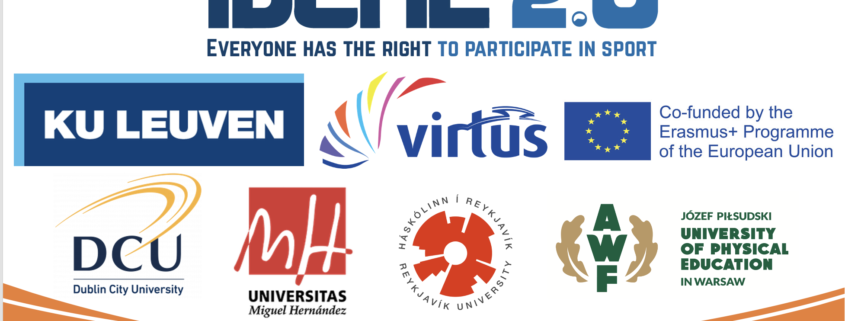
In this webinar the IDEAL 2.0 project is presented in a panel discussion with the 7 researchers involved in this project. Virtus Academy is delighted to be one of the main partners in the EU funded project, with the aim to faciliate inclusive and equitable sport for athletes with intellectual disability and/or autism. The panel members discuss the goals of the project, their own roles, and how the project has the potential to benefit Virtus and all Virtus athletes.



